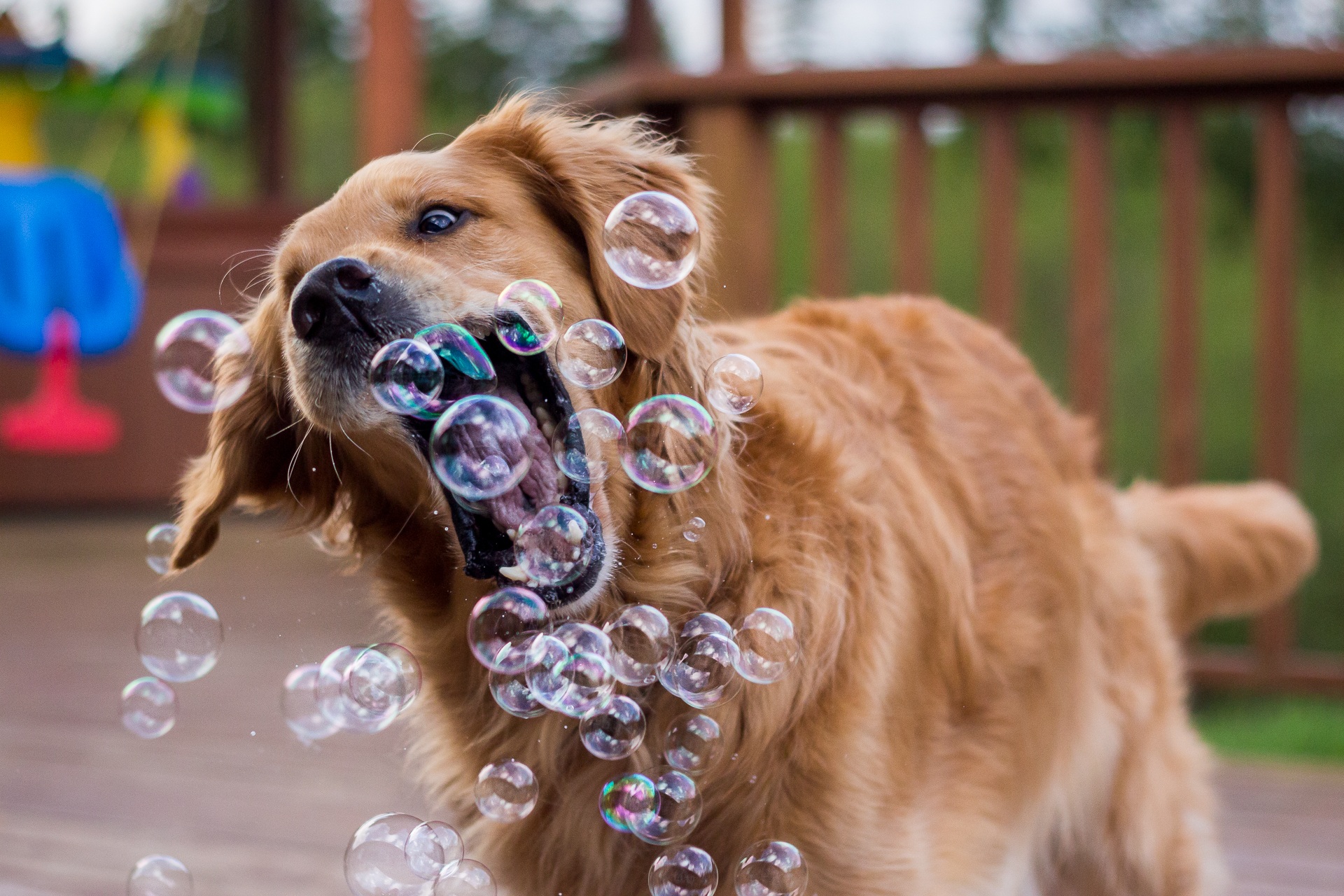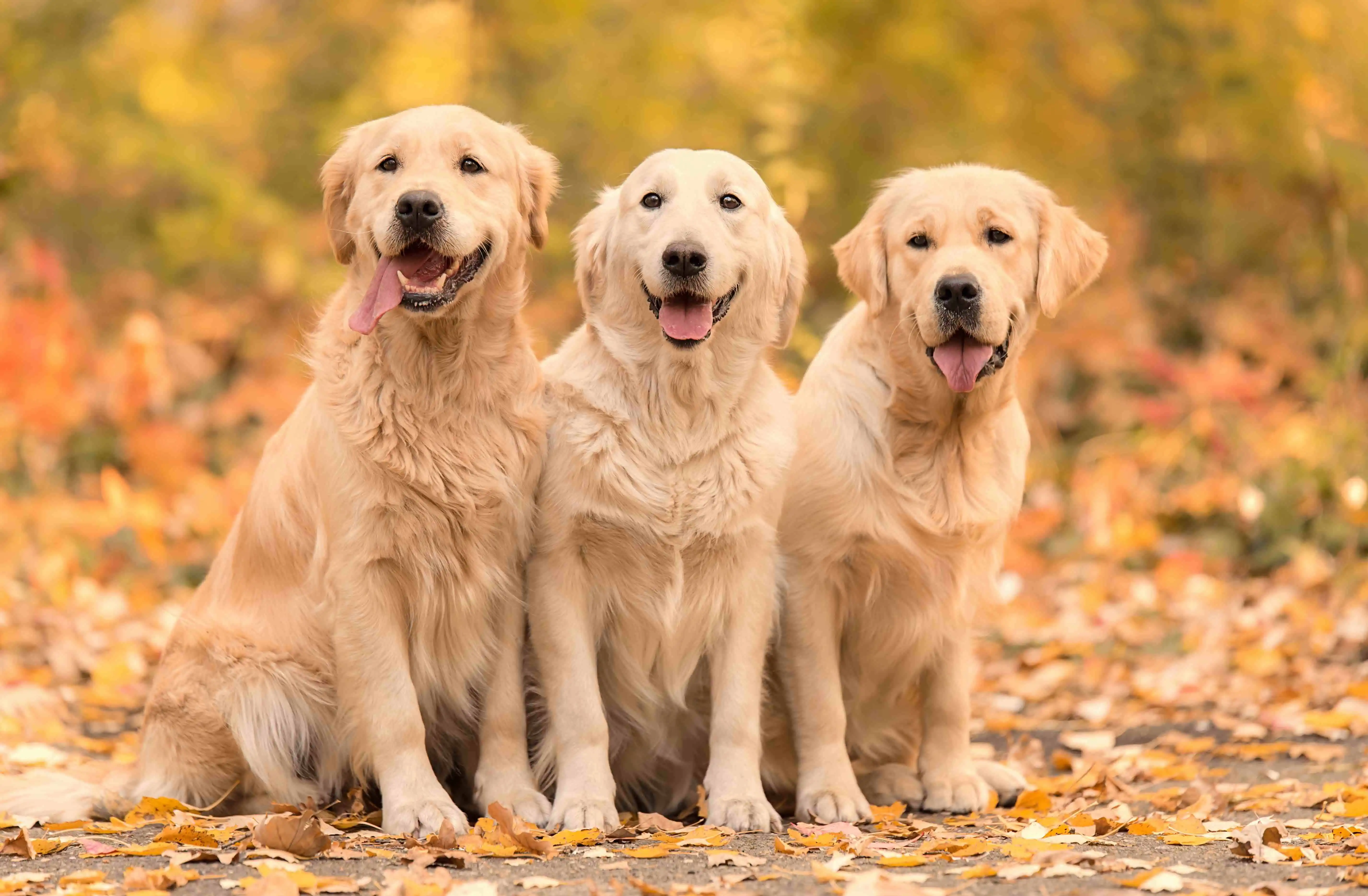Golden Retrievers: Unparalleled Playfulness and Its Complexities
Thesis Statement:
Golden Retrievers, renowned for their exuberant playfulness, embody a unique blend of physical, cognitive, and emotional traits that underpin their exceptional enthusiasm for life. However, this playfulness extends beyond mere entertainment; it is intricately woven into their behavioral repertoire, contributing to their overall well-being and influencing their interactions with the world around them.
The Innate Playfulness of Golden Retrievers
Golden Retrievers are inherently predisposed to playfulness. Their playful nature is evident from puppyhood, as they engage in energetic activities such as chasing, retrieving, and mouthing. This intrinsic playfulness is rooted in their hunting heritage, where retrieving game was an essential aspect of their work. Even in modern times, Goldens retain a strong desire to engage in activities that mimic their ancestral roles.
Physical Benefits of Playfulness
Playfulness provides Golden Retrievers with numerous physical benefits. It promotes cardiovascular health, muscle development, and coordination. The energetic nature of their play helps them maintain a healthy weight and prevents obesity-related problems. Regular play sessions also improve their agility and flexibility, contributing to their overall physical well-being.
Cognitive and Emotional Benefits of Playfulness
Beyond physical benefits, playfulness also enhances Golden Retrievers' cognitive and emotional development. Play stimulates their problem-solving abilities and encourages them to explore their environment. It provides mental stimulation and reduces boredom, which can lead to anxiety and destructive behaviors. Moreover, playfulness promotes bonding between Goldens and their owners, as they share moments of joy and laughter.
Play Styles and Temperaments
Golden Retrievers exhibit a wide range of play styles and temperaments. Some are more energetic and boisterous, while others prefer quieter, more solitary activities. These variations are influenced by genetics, early socialization, and individual experiences. Understanding their preferred play styles helps owners tailor activities to meet their specific needs and maximize their enjoyment.
The Role of Socialization and Training
Socialization and training play a crucial role in shaping the playfulness of Golden Retrievers. Early exposure to positive play experiences with other dogs and people helps them develop appropriate social skills and prevents the development of fear or aggression. Training also helps Golden Retrievers learn to control their playfulness and channel it in socially acceptable ways.
Perspectives on Playfulness
Various perspectives exist on the significance of playfulness in Golden Retrievers. Some believe that it is an essential aspect of their health and happiness, while others view it as a potential nuisance or distraction. Ethologists emphasize the evolutionary origins of play and its role in species survival. Dog trainers see playfulness as a valuable tool for training and socialization.
Conclusion:
Golden Retrievers are a breed known for their unparalleled playfulness. This exuberant behavior is not merely entertainment; it is an integral part of their nature, contributing to their physical, cognitive, and emotional well-being. Understanding the complexities of Golden Retriever playfulness allows owners to harness its benefits while addressing potential challenges. By providing appropriate play opportunities, socialization, and training, owners can ensure that their Golden Retrievers live happy, healthy, and fulfilling lives filled with the joy of play.
Reflection on Broader Implications:
The study of playfulness in Golden Retrievers provides insights into the importance of play in animal behavior and well-being. It highlights the complex interplay between genetics, environment, and individual experiences in shaping animal behavior. Moreover, it emphasizes the role of human interaction in influencing the development and expression of playfulness. The findings from this study can be applied to other breeds and species, fostering a deeper understanding of the significance of play in animal life.
Why Yorkshire Terriers Are Known For Their Tenacity
Poodles And Their Impressive Memory: Fun Facts
The Funniest Things German Shepherds Do



